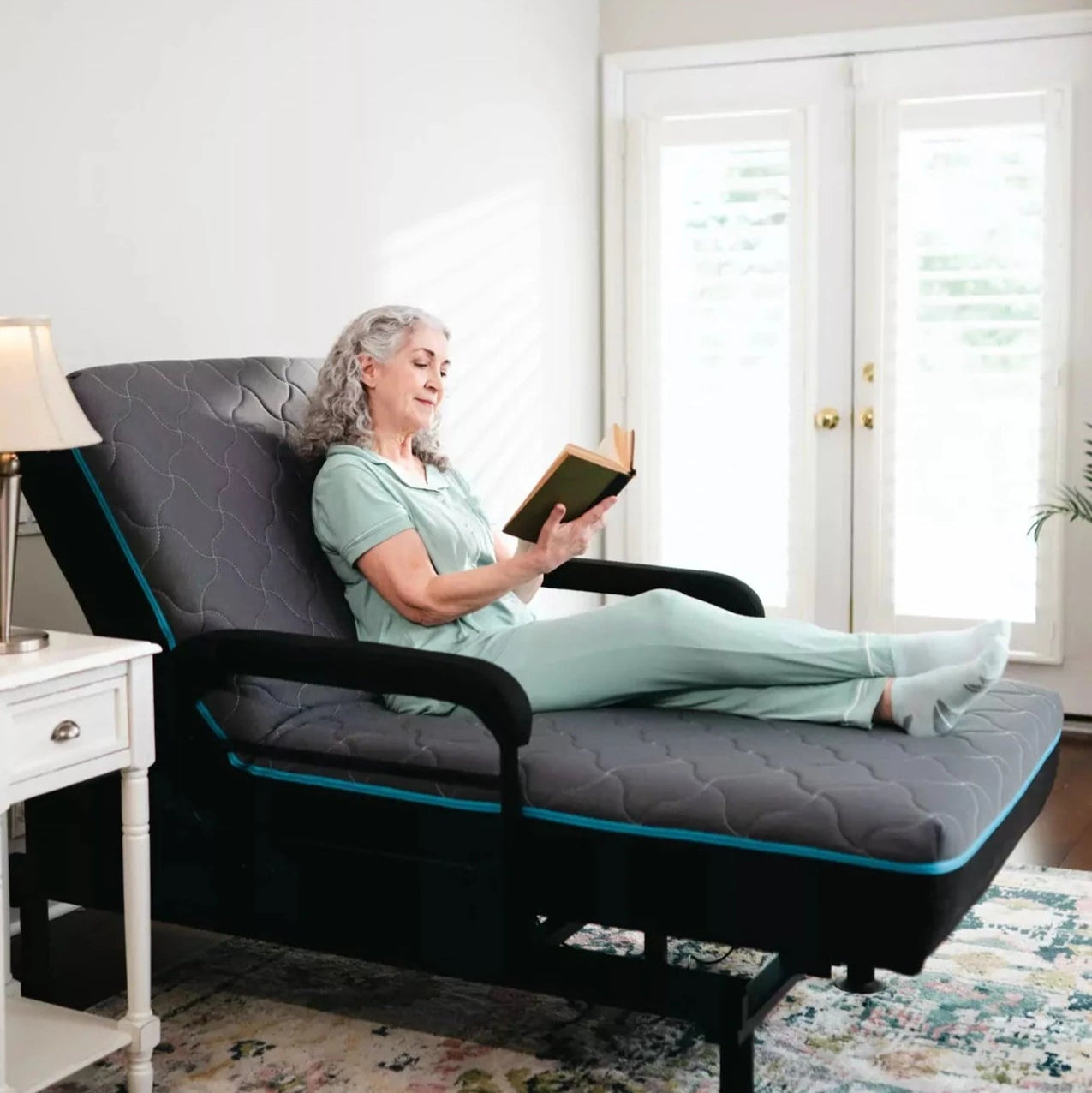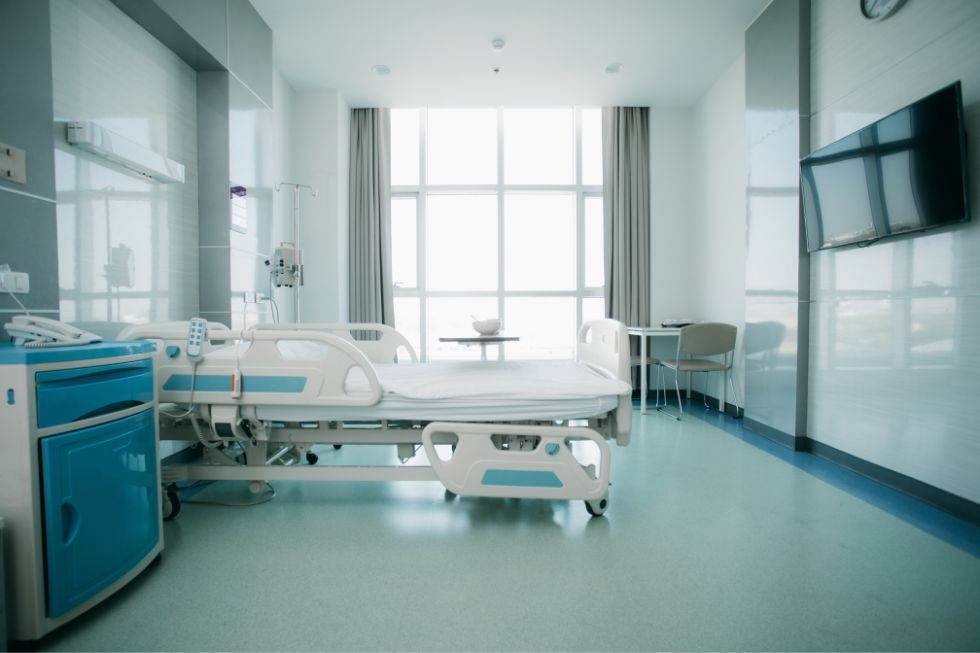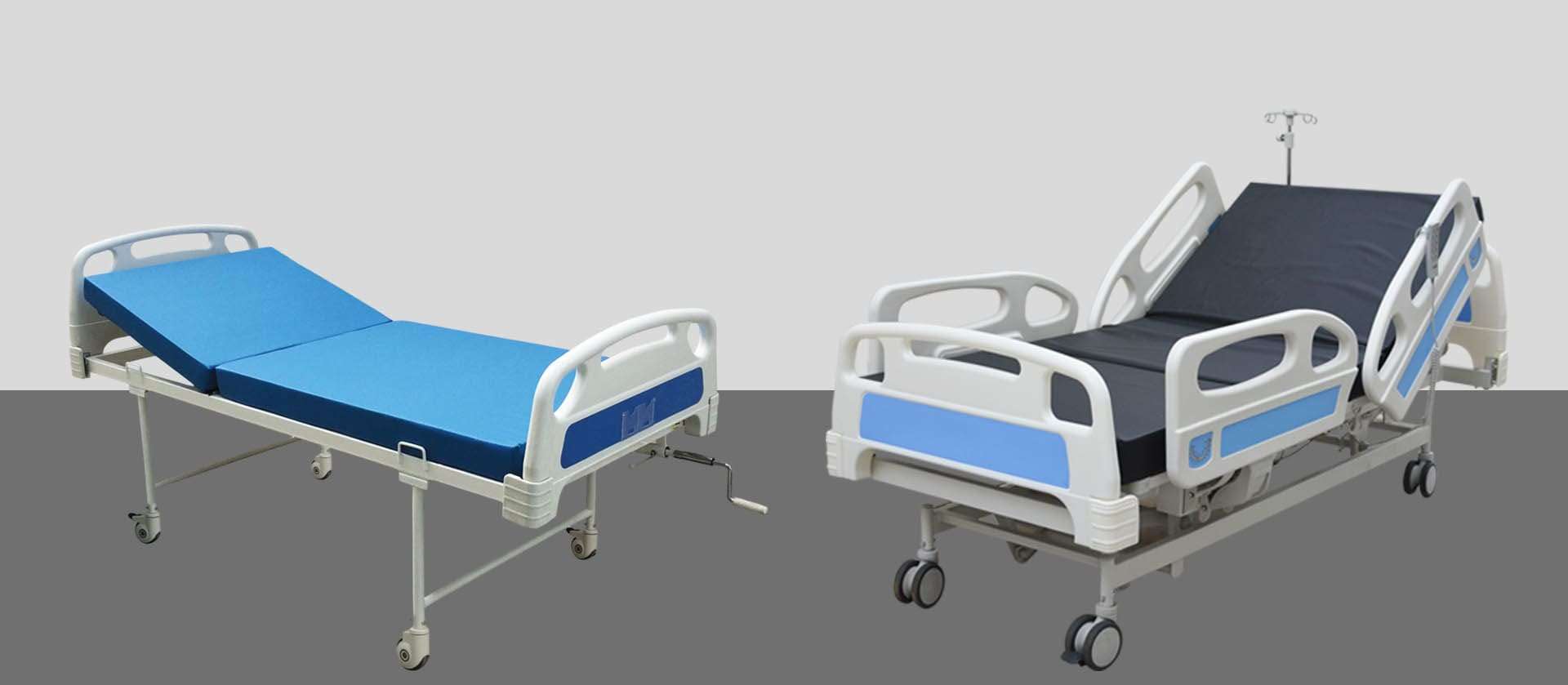Hospital Beds For Home Use - An Overview
Hospital Beds For Home Use - An Overview
Blog Article
The Best Guide To Hospital Beds For Home Use
Table of ContentsThe Best Guide To Hospital Beds For Home UseNot known Facts About Hospital Beds For Home UseThe Ultimate Guide To Hospital Beds For Home UseRumored Buzz on Hospital Beds For Home UseWhat Does Hospital Beds For Home Use Mean?The Best Guide To Hospital Beds For Home UseSome Of Hospital Beds For Home Use
There are three primary kinds of hospital beds: handbook, semi-electric, and fully-electric. More types of medical beds exist and they are detailed below. These beds use hand cranks to change the bed's height and elevate and decrease the head and the foot. Hand cranks are generally located at the foot of the bed and call for an individual that is literally qualified of operating.
Semi-electric beds have an electric motor to raise and decrease the head and foot portions of the bed (hospital beds for home use). Full-electric beds have an electrical motor that can increase the head and foot sections of the bed as well as the whole elevation and positioning of the bed.
Indicators on Hospital Beds For Home Use You Should Know
Some designs can also relocate into even more positions, such as the Trendelenburg (tilt) placement. There are numerous kinds of healthcare facility beds, each created to fulfill specific client requirements. Below are some common kinds: This is the most usual type of health center bed, developed for basic medical usage. It has a handbook or electrically adjustable headrest, foot rest, and height.
Reduced to the ground than a basic bed. This kind of bed is designed for larger people, with a larger frame and greater weight ability than a conventional bed. This kind of bed is designed specifically for kids, with smaller sized sizes than a typical bed. Unique features such as full length side rails and animation design.
This type of bed is designed for critically ill clients who require open monitoring and specialized medical equipment such as ventilators and infusion pumps. This kind of bed is designed for use during labor and distribution, with flexible positions and attributes to sustain the mother and baby throughout the birth procedure.
Hospital Beds For Home Use Things To Know Before You Buy
Several feature and the accessories perform expanding traction to various components of the vertebra and the extremities without relocating the human body. These are just a couple of examples of the types of health center beds readily available. The certain type of bed made use of will certainly depend on the person's condition, medical requirements, and various other factors.
Here is the point you need to know. A one-function hospital bed is a clinical bed that allows a client to relocate just the head or foot section up or down. A 2 feature hospital bed normally refers to a sort of medical bed that has 2 adjustable functions to assist individuals in hospitals or care facilities.

Hospital Beds For Home Use for Beginners
A 7-function ICU bed is a kind of clinical bed that provides several adjustable functions to support critically unwell people in a critical care unit (ICU) (hospital beds for home use). web The seven functions generally consist of: Back-rest modification: The back-rest can be readjusted to numerous angles to aid the client rest up or exist down pleasantly
Elevation modification: The bed can be increased or lowered to make it easier for clients to get in and out of bed, and for caregivers to offer care. Trendelenburg setting: The whole bed can be slanted to promote blood flow and blood circulation in the body. Reverse Trendelenburg setting: The bed can likewise be tilted in the contrary direction to promote blood circulation and circulation in the upper body.
While even more budget friendly than electric models, these beds require exertion for modifications. The main advantages of hands-on beds are their price and integrity, as they do not count on electricity. The demand for manual initiative can be a limitation in situations where quick changes are essential or where caregivers face physical obstacles.
The Greatest Guide To Hospital Beds For Home Use
Semi-electric healthcare facility beds offer an equilibrium of handbook and more information electric controls. These beds offer an excellent middle ground between guidebook and completely electric options, providing ease of use without the full expense of electrical designs.
Semi-electric beds are fit for people who require moderate modifications to the head and foot sections but can manage without constant elevation changes. This makes them a cost-efficient solution for those looking for convenience and benefit without the demand for consistent repositioning. Completely electrical healthcare facility beds include electric controls for seamless changes to the height, head, and foot sections.
Specialty hospital beds, such as ICU beds, lasting treatment beds, and bariatric beds, are very carefully developed to resolve certain clinical needs. These beds provide customized take care of diverse client groups, improving both outcomes and convenience. In the following areas, we will certainly check out the major sorts of specialty health center beds, outlining their certain advantages and applications.
With years of experience in producing electric linear actuators - hospital beds for home use and close cooperation with the medical care sector, TiMOTION is well-positioned to give reputable healthcare services. Our up and down incorporated business manages every step of the manufacturing procedure, from style to actuator setting up, guaranteeing we deliver phenomenal value and personalized solutions customized to your particular demands
The Hospital Beds For Home Use Statements

To get more information concerning incorporating these innovations into your items, contact us today. Further analysis:.
Data is sourced from the Medicare Expense Record.

Some Known Factual Statements About Hospital Beds For Home Use
A medical facility bed is a bed designed particularly for clinical objectives. It is not just a location for patients to rest, yet additionally a system for clinical procedures. Unlike common home beds, medical facility beds usually have flexible functions, which can facilitate clinical team to make various changes according to the demands of clients, such as altering the height, disposition, and assistance angle of the back and legs of the bed.
Report this page